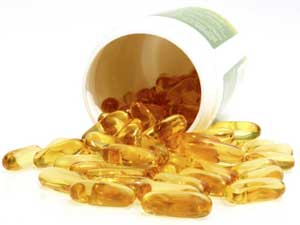Migraine Headache
What is Migraine Headache? A migraine is a vascular-type headache characterized by a sharp pounding pain located within one side of the head. The pain of a migraine is characterized as a throbbing or pounding sharp pain. It is typically noticed on just one side of the...
Menopause
What is Menopause? Menopause denotes the cessation of menstruation in women, which usually occurs when a woman reaches the age of fifty but may occur as early as 40 and as late as 55 years of age. Six to twelve months without a menstrual period is the commonly...
Macular Degeneration
What is Macular Degeneration? The macula is the area of the retina where images are focused. It is the portion of the eye responsible for fine vision. Age-related degeneration of the macula is the leading cause of severe visual loss in the United States in persons...
High Blood Pressure
What is High Blood Pressure? High blood pressure is a major risk factor for a heart attack or stroke. The blood pressure denotes the resistance produced each time the heart beats and sends blood coursing through the arteries. The peak reading of the pressure exerted...
Herpes
What is Herpes? Herpes simplex is a virus that is responsible for cold sores and genital herpes. There are two types of Herpes simplex viruses: type 1 (HSV-1) is most often responsible for cold sores (also referred to as fever blisters) while type 2 (HSV-2) is...
Hepatitis
What is hepatitis? Hepatitis refers to inflammation of the liver. Hepatitis can be caused by many drugs and toxic chemicals, but in most instances it is caused by a virus. Viral types A, B, and C are the most common. During the period before liver involvement a person...
Gout
What is Gout? Gout is a common type of arthritis caused by an increased concentration of uric acid (the final breakdown product of purine-one of the units of DNA and RNA) in biological fluids. In gout, uric acid crystals are deposited in joints, tendons, kidneys, and...
Fibromyalgia
What is Fibromyalgia? Fibromyalgia is a recently recognized disorder that is regarded as a common cause of chronic musculoskeletal pain and fatigue. What are the signs and symptoms of Fibromyalgia? Fibromyalgia is characterized by generalized aches or stiffness of at...
Diabetes
What is Diabetes Mellitus? Diabetes mellitus is a chronic disorder of carbohydrate, fat, and protein metabolism characterized by fasting elevations of blood sugar (glucose) levels and a greatly increased risk of heart disease, stroke, kidney disease, retinopathy, and...

Critical Illness is Linked to Levels of Coenzyme Q10
Introduction: Coenzyme Q10 (CoQ10), also known as ubiquinone, is an essential component of the mitochondria - the energy producing unit of the cells of our body. CoQ10 is involved in the manufacture of ATP, the energy currency of all body processes. Its role in the...
